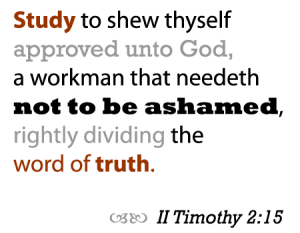The Bible definition of restitution is payment for something misused, whether it is defined in the Hebrew, Greek or English. Restitution under the Law of Moses demands the return or compensation to the owner of that which was lost, stolen, abused, or damaged.
If the sun be risen upon him, there shall be blood shed for him; for he should make full restitution; if he have nothing, then he shall be sold for his theft. (Exodus 22:3 KJV)
If a man shall cause a field or vineyard to be eaten, and shall put in his beast, and shall feed in another man’s field; of the best of his own field, and of the best of his own vineyard, shall he make restitution. (Exodus 22:5 KJV)
If fire break out, and catch in thorns, so that the stacks of corn, or the standing corn, or the field, be consumed therewith; he that kindled the fire shall surely make restitution. (Exodus 22:6 KJV)
And if it be stolen from him, he shall make restitution unto the owner thereof. (Exodus 22:12 KJV)
That which he laboured for shall he restore, and shall not swallow it down: according to his substance shall the restitution be, and he shall not rejoice therein. (Job 20:18 KJV)
Whom the heaven must receive until the times of restitution of all things, which God hath spoken by the mouth of all his holy prophets since the world began. (Acts 3:21 KJV).
This definition is very important in prophetic studies, especially in the context of its usage. Look at Acts 3 and what Peter says:
Act 3:19 Repent ye therefore, and be converted, that your sins may be blotted out, when the times of refreshing shall come from the presence of the Lord;
Act 3:20 And he shall send Jesus Christ, which before was preached unto you:
Act 3:21 Whom the heaven must receive until the times of restitution of all things, which God hath spoken by the mouth of all his holy prophets since the world began.
Peter is preaching to the men of the nation of Israel (Acts 3:12) who agreed with their leaders in rejection and crucifixion of Christ. Jesus ascended back into heaven after His resurrection and the promise is that He will return.
John 14:3 And if I go and prepare a place for you, I will come again, and receive you unto myself; that where I am, there ye may be also.
Acts 1:11 Which also said, Ye men of Galilee, why stand ye gazing up into heaven? this same Jesus, which is taken up from you into heaven, shall so come in like manner as ye have seen him go into heaven.
Peter deals with the most important issue first: Israel’s (not the sinner in the age of grace) sins blotted out. This remission of sins will occur “when the times of refreshing come”. Of importance to notice, is that this blotting out or remission, total removal of sins, can not happen BEFORE (until ) Jesus returns, “when the times of refreshing” will come to Israel. These “times” will not happen without the Lord’s first returning to Israel.
So we see TWO “times” spoken of in Acts 3:19-21: one of “refreshing” and one of “restitution” (payment for wrong done): one of blessing and one that demands a payment to be made BEFORE the blessing. Correct prophetic interpretation of the Bible depends upon believing both will literally occur. But, correct interpretation demands that each of these “times” be properly defined by Bible usage and context.
Peter tells the men of Israel that God the Father will “send Jesus Christ which before was preached unto you: whom heaven must receive until (BEFORE) the times of restitution of all things.” Does this mean the Jesus Christ will come BEFORE “the times of restitution”? No, a thousand times, “No!” Some try to make the return of Jesus be BEFORE, simply because they only see the preposition “until”. The preposition does not control a sentence–context does…
Notice: The above is approximately 1/6th of the full study. If you would like to receive the full study, please request it from davereese6@msn.com. The complete study will be sent at no obligation.

